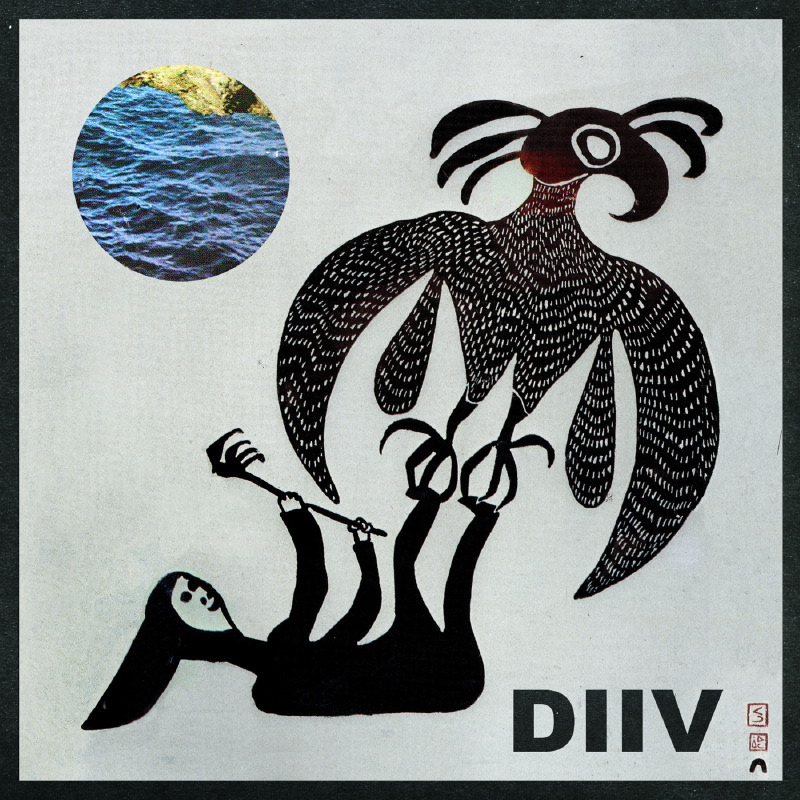The response to the band’s recent singles, Dopamine, Bent (Roi’s Song) and Under The Sun, has been strikingly positive. Labouring over Is The Is Are for such a long time, and enduring volleys of press scrutiny, it’d be all for nothing if there wasn’t something powerful and worthwhile to express.
“At first it wasn’t really the amount of time that had gone between records that really told me, ‘This has to be an important record.’ It was more just circumstances in my life,” says Smith. “I didn’t want for the rest of my life to be a footnote of, ‘Oh this is the guy who was arrested for drug possession with Sky Ferreira.’ I didn’t want to be a small little blip, one record, and then an arrest. It was so important for me to bring value back to my name.”
From an external point of view, DIIV ascended to international regard with paramount ease. Having previously played drums in Beach Fossils, Smith’s bedroom demos caught the ear of that band’s label, Captured Tracks. DIIV soon signed to the label, and before long indie tastemakers Pitchfork were praising those very same demos. From there the hype swelled across borders, growing especially vocal upon the release of Oshin in mid-2012. However, Smith was determined to prevent the buzz-band status from impinging upon the nature of DIIV’s second album.
“Those types of bands so often are just like one blip and then they’re gone,” he says. “The number of bands that have a buzzy first record with an even better second record… very, very few bands accomplish that feat. And I knew that people were expecting us to fizzle out like all the rest. So I really wanted to prove people wrong – it was really important for me to follow up Oshin with something that wasn’t just Oshin part two. No matter how easy that would’ve been and how tempting it was, ultimately it wouldn’t have contributed anything to the world and it wouldn’t have done much to prove to people that I’m more than a flash in the pan artist.”
Given Smith’s tumultuous few years, it’s no surprise that vulnerability is a big theme of the new record. It’s there in plain sight on the lead single Dopamine, which contains such lines as “Burning out, running in place / Got so high I finally felt like myself.” And it’s not merely a feature of the album’s lyrics.
“If I’m speaking of my own vulnerability I think it is super important to make a record that itself is also extremely vulnerable,” Smith says. “The record came together as a double record and I conceived it as one from the beginning. When you make a double record you’re setting yourself up for failure, in a lot of ways, and that was kind of what I wanted to work with.
“There’s nothing more easy to criticise than a double record. If you put one extra note on the record people are going to tear you apart for the rest of your life. So to make a record that was vulnerable – that was about failure and vulnerability and about being human yourself – I thought it was really important to make the record feel almost human. From the album art to the title to everything, I wanted it all to be easy to criticise. But another word for easy to criticise is ‘vulnerable’.”
Although the album title might seem like an obtuse quasi-sentence, it’s a highly evocative phrase. On the one hand, Is The Is Are could be interpreted as a trivial inquiry or a nonsensical tongue twister, but it’s also grammatically ambiguous and logically jarring.
“I wanted it to be slightly disorienting,” says Smith. “The title came before the album was totally 100 per cent written in stone, so in some ways the title inspired some elements of the record.”
This active attempt to disorient listeners is indicative of Smith’s lack of concern for maintaining DIIV’s ‘hip’ reputation. “When bands try to be too cool all the time then it just messes up the whole thing. You’ve got to just take an identity and go with it. A lot of bands struggle to find a sound that is uniquely theirs and they struggle to find an identity. The identity I wanted for the band was just myself and being honest with myself and speaking honestly and openly to the press, which is hard to do but also it’s not much work because it’s just myself. Then in terms of sound, it was really important for me with this record for anybody to be able to pick up the record, put on any song and be like, ‘Alright, that’s DIIV. It has a recognisable sound,’ which I feel like it does have.”
BY AUGUSTUS WELBY







